World Environment Day: Land the size of Dhaka city degrades every year
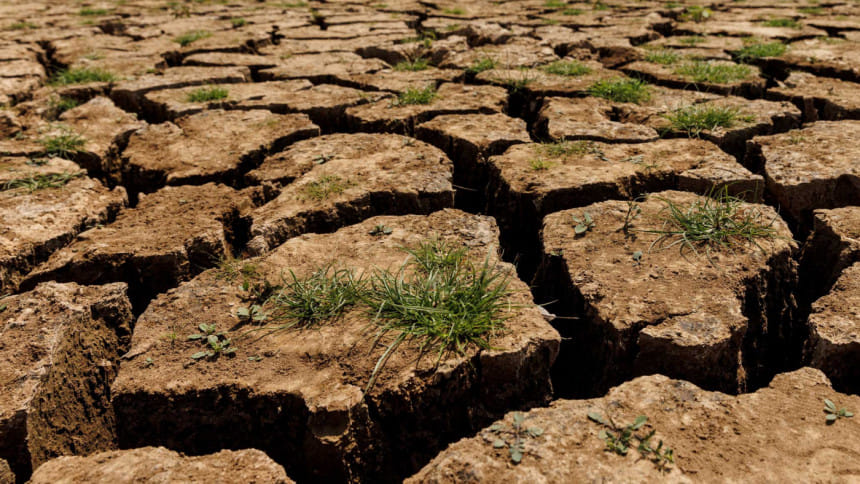
Soil degradation in Bangladesh is happening at a faster pace than earlier thought, and it is threatening the country's food security.
Every year, the physical, chemical, and biological or economic properties of soil are degrading on around 270 sq km area, roughly the size of Dhaka city.
"If the trend continues, there will be no cultivable land within the next 63 years," said Ameer Md Zahid, chief scientific officer at the Soil Resource Development Institute (SRDI) of the Department of Environment (DoE).
"If the situation continues, there will be no cultivable land within the next 63 years."
The SRDI conducted a study which revealed that the trend of soil degradation has been continuing for 20 years.
Today is World Environment Day. This year's theme is "Our Land, Our Future. We are #GenerationRestoration". This year's theme emphasises the importance of restoring land, combating desertification, and enhancing resilience to drought.
Ameer told The Daily Star that if immediate actions were not taken to stop the soil degradation, the country's food security would be threatened.
Soil degradation is the decline in soil fertility, organic matter depletion, acidification, salinisation, soil pollution, soil erosion, riverbank erosion, sand overwash, drought, waterlogging, soil sealing, and ecosystem degradation.
The SRDI study, styled "Land Degradation in Bangladesh 2020", found that soil degradation of moderate to very severe levels happened on 1.124 crore hectares in 2020. The study was published in 2022.
"It is about 76.2 percent of the country. The degraded land is 0.54 million hectares [5.4 lakh] higher than the previous estimation of 10.70 million [1.070 crore] hectares of 2000," the report said.
Experts said poor soil health has a direct impact on the country's life, agriculture, and the environment.
They said the country's soil is deteriorating mainly due to the excessive use of chemical fertilisers, rising salinity, industrial pollution, deforestation, and the improper dumping of electronic and medical wastes.
They also blamed the population boom, temperature rise, and excessive cultivation for the soil degradation in Bangladesh.
The Barind tract in the north of the country is being exposed to desertification due to water scarcity, while the coastal region in the south is being exposed to serious salinity.
"We are in a vulnerable situation. We are seeing a trend of expansion of draught areas in Bangladesh due to poor rainfall and depletion of groundwater," said Md Harunor Rashid Khan, professor and chairman at the department of soil, water, and environment at Dhaka University.
He said apart from man-made disasters, Bangladesh is also witnessing the impacts of climate change in the forms of cyclones, flooding, and temperature rise.
Due to excessive use of fertilisers, beneficial microorganisms in the soil are rapidly declining. Plants are not receiving necessary nutrients from the soil. Even after the excessive use of fertilisers, some plants are not growing, he said.
Experts said soil degrades and neutralises naturally, but over the last 50 years the neutralisation has not happened due to human interventions and climate change.
They said now the soil is not getting any rest from agricultural production as almost all land available is being used for cultivation round the year. And high-yield crops are being grown, which puts extra stress on the soil.
"At the cost of soil health, we are getting food. The soil does not get rest, and we harm the microorganisms in the soil by using chemical feritilisers and pesticides. In Bangladesh, scarcity of land is a big issue and degradation of soil is a double blow," said ASM Fazle Bari, an associate professor of the department of soil science at Sher-e-Bangla Agricultural University.
Meanwhile, the government has set a target to improve soil fertility on 2,000 sq km by 2030.
Environment Minister Saber Hossain Chowdhury said, "We have identified the zones where the land has degraded. We will take up zone-specific projects to address the crucial land degradation issue, and the FAO [Food and Agriculture Organisation] is cooperating with us. Apart from this, the government is also planning to take up projects to address the issue."
He said of the 23 lakh hectares of forest land, approximately 5.3 lakh hectares have degraded. The deforestation rate is about 10,000 hectares a year.
"We plan to restore 2 lakh hectares by 2030 and will work with development partners and allocate government funds to achieve this."

 For all latest news, follow The Daily Star's Google News channel.
For all latest news, follow The Daily Star's Google News channel. 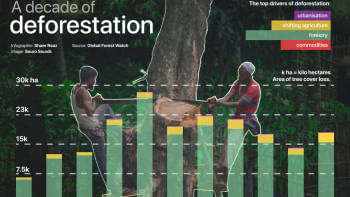


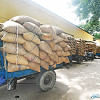

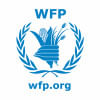

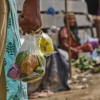


Comments